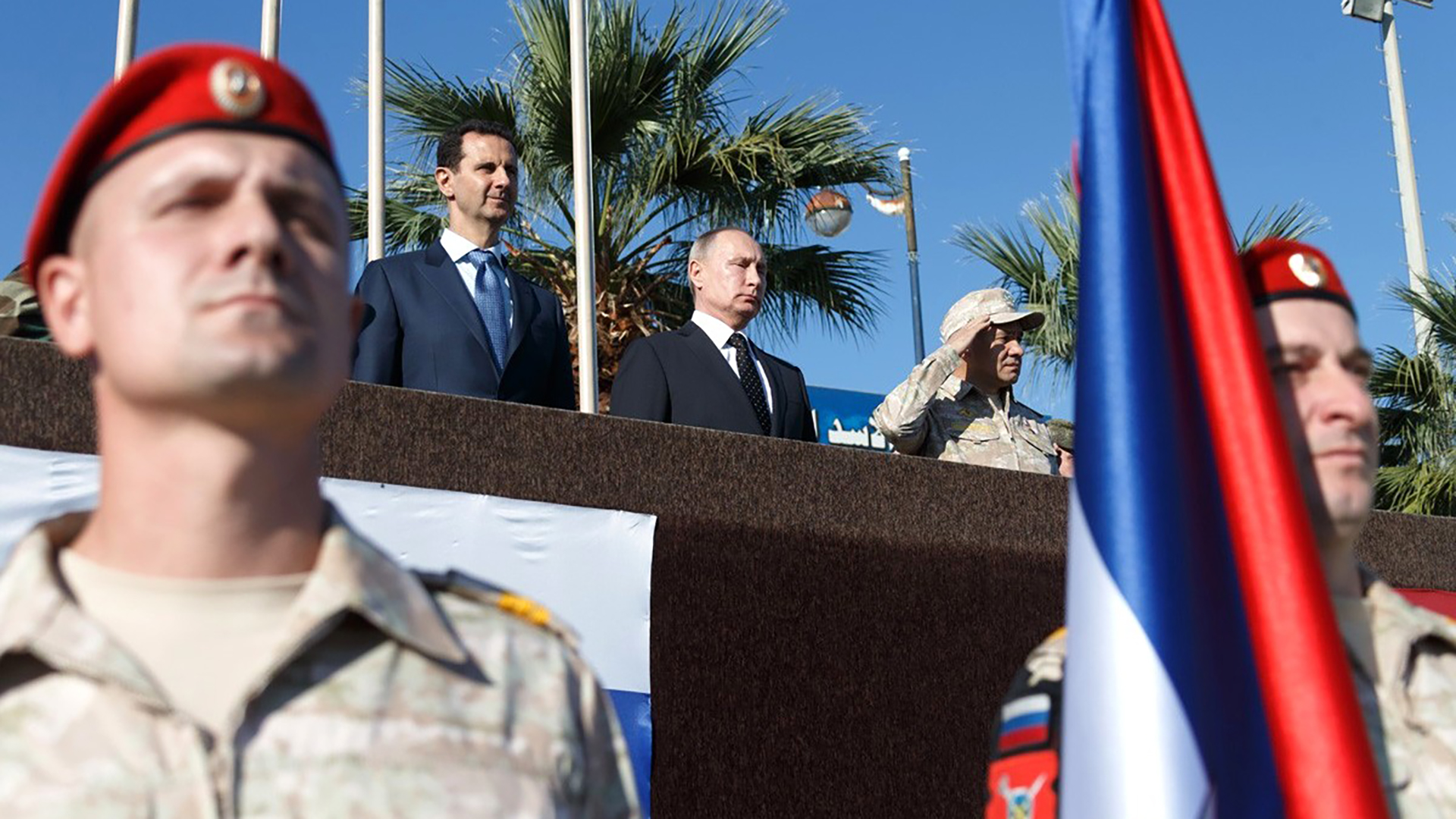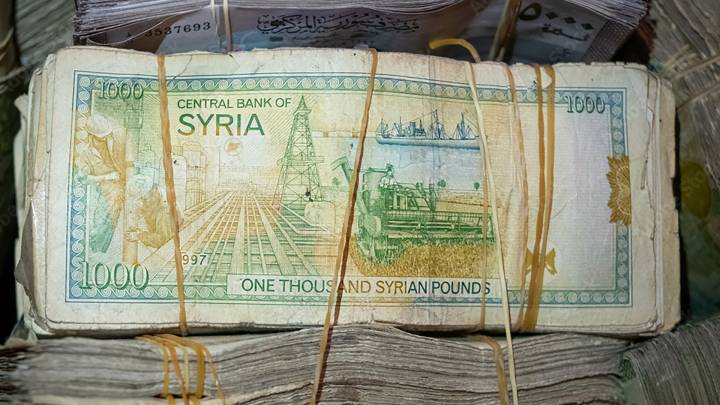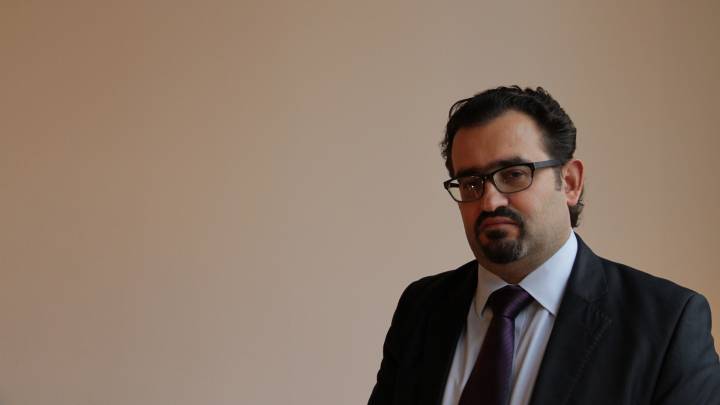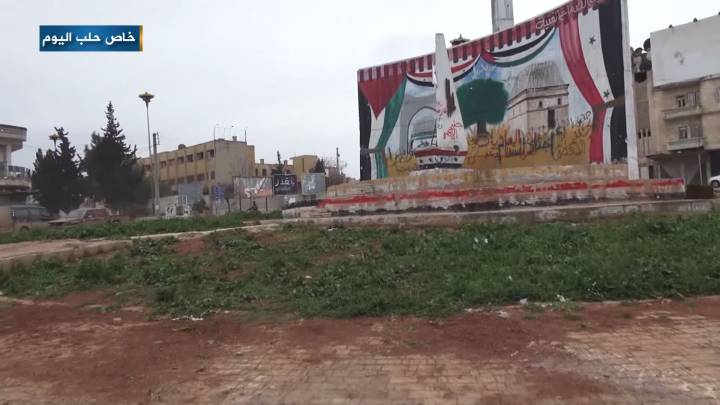Was Russia really caught off-guard by the advance of the insurgents? A theory on the current situation in Syria.
For days, observers around the world have been struggling to make sense of the attack by the “Committee for the Liberation of Greater Syria” (Hay'at Tahrir al-Sham, HTS) group on regime areas in Syria and the speed with which these mujahideen broke through the Syrian Army's defensive lines. Observers are also surprised by the Russian military's response. On the one hand, it was weaker than expected; on the other hand, the Russian air strikes were significantly less effective than in the past. Moscow's political response was sharp in tone, but there was no outcry in the form of violent threats or martial rhetoric.
The fact that the Russian air force only intervened two or three days after the attack began was initially interpreted as a result of the war in Ukraine and the Russian military capacities being tied up on that frontline. Some observers suspected that Russia wanted to put pressure on Bashar Al-Assad so that the Syrian president would return to negotiations with Turkey's Recep Tayyip Erdoğan and reach an agreement to restore relations between the two states. Moscow has been working gradually towards such a rapprochement in recent months, but Assad had remained stubborn in his refusal to make concessions.
However, such explanations are no longer sufficient to explain Russia's hesitant military response after the capture of Aleppo and the advance of HTS towards the south. This reaction raises the question of whether the situation should perhaps be viewed from a different perspective. In other words, could it be that Russia did not want to prevent HTS from winning ground in Syria, taking control of the large cities of Aleppo and Hama and marching further towards Damascus?
HTS's movements in Aleppo strongly suggests that the group had no serious fear of being expelled from the city. It was able to restore electricity there immediately, and gasoline, diesel and food are available in large quantities. In addition, the masts of the state-run Syrian telephone network were dismantled and replaced with those of another network. In other words, there are apparently no fears of a large-scale Russian bombing campaign, in contrast to what the city endured during the battle for Aleppo in 2017-2018.
Even during its advance southwards, HTS is encountering only weak resistance from the Syrian army and some Syrian paramilitary units. Neither the militias of the Lebanese Hezbollah nor forces from Iran or Iraq are significantly involved in the fighting.
The Russians are well aware of the diminished capabilities of Hezbollah after the Israeli campaign in Lebanon. Moscow is also aware of Iran's difficulties to effectively deploy military forces on Syrian territory. On the one hand, the Iranians fear being exposed to attacks by Israel, and on the other hand, they had already reduced their military presence in Syria before the offensive in order to send positive signals to their Arab neighbours and, above all, to the future US administration, which sees Iranian military influence in the region as the main factor of instability and is probably prepared to take action against Tehran. Iran thus tried to adapt its strategy to make up for its undeniable weakness.
The same logic applies to the Iraqi militias, which find themselves in a difficult domestic political situation following the mutual attacks by Iran and Israel, and the Israeli attacks on Hezbollah. Although it has declared to stand in solidarity with the Syrian state, the Iraqi government will do everything in its power to keep Iraq out of such existential conflicts – a fact that the Russians are also aware of.
The fact that Moscow was keenly observing these developments and yet did not react more strongly militarily is one side of the coin. The other side could be that Russia deliberately used the situation to gently change its strategy in Syria. Could it be that the Russians, along with Turkey, have abandoned the agreements in the wake of the Astana process with the Iranians after realizing how weakened Iran has become in Syria? Could it be that the Russians have given HTS and other groups leeway to establish an alternative system to the Assad regime?
Assad and HTS both reject the notion of Western-style democracy
Such a system could consist of Islamists or moderate Islamists – or, as it is being labelled now, an "Islamic but non-religious state." This setup would free the Russians from the burden of the Assad regime while allowing them to support a system that is closer to their interests. Moscow already has experience in establishing these kinds of systems, Chechnya after the wars in the 1990ies is a prime example. Back then, the Kremlin repurposed the resistance to Russian rule to construct a system that still serves its interests today. Given its large Sunni Muslim minority in the country, Russia routinely claims to be better suited to deal with Islamic authoritarian systems.
The fact that the Sunni HTS leadership in the northwestern province of Idlib already had many of the hallmarks of a military-authoritarian secret service state is probably conducive for a setting up such a system with Russian approval.
This a similar approach would be conceivable in Syria, especially since Turkey can play a key role as a partner, given its prior relations to these Sunni militias. The ruling elites in Chechnya also maintain relations with similarly minded groups. For the Russians, this scenario would not ultimately present a win-win situation, but an opportunity to turn a strategic weakness to their advantage. Neither Assad nor HTS believe in the liberal state – both share the Russians' reservations about the model of Western democracy – a convergence of interests that is of central importance to Russia in its geopolitical struggle against the West and its liberal ideology.




